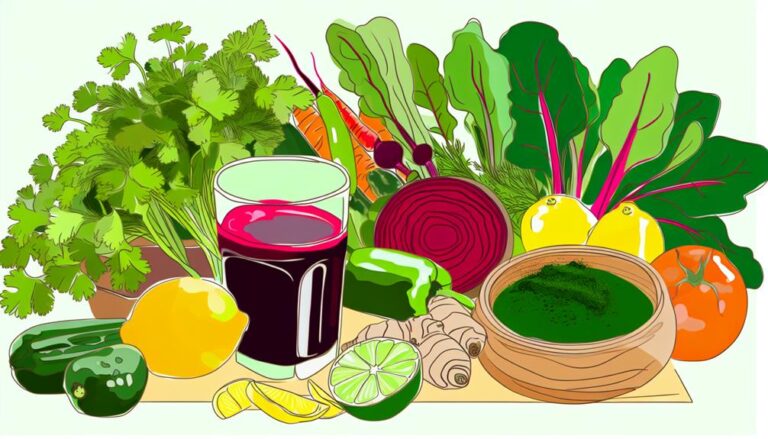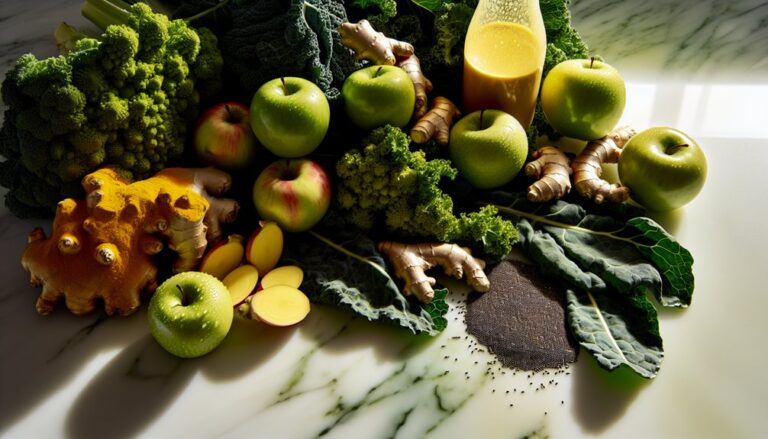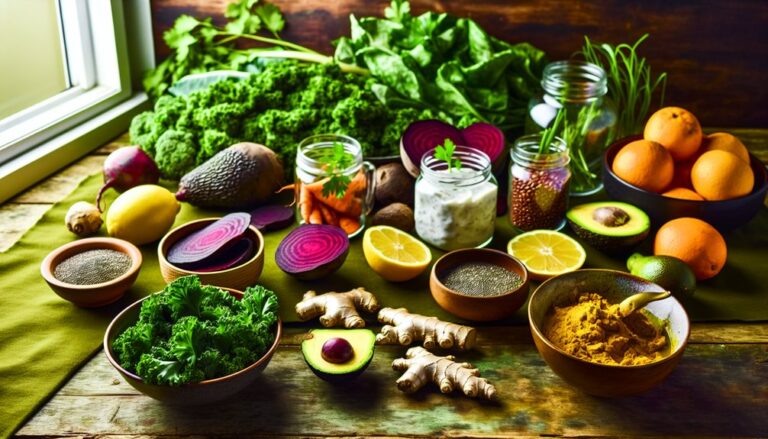
senior fitness videos youtube;senior fitness test pdf;senior fitness test interpretation;senior fitness centers near me;senior fitness exercises

Hydration’s Role in Liver Detoxification
When you think about liver detoxification, hydration might not be the first thing that comes to mind, but it’s more critical than you realize. Adequate water intake not only supports bile production but also enhances the liver’s ability to filter out toxins effectively. Without proper hydration, your liver’s functionality can deteriorate, leading to a range of issues.
Understanding the Liver’s Function
The liver plays an essential role in maintaining your body’s overall health. It filters out toxins from your bloodstream, breaking them down into harmless substances that your body can easily eliminate. Additionally, the liver produces bile, which helps digest fats and absorb fat-soluble vitamins. Maintaining liver health is crucial, as a compromised liver can result in jaundice, fatigue, and increased susceptibility to infections.
Hydration and Detoxification
Hydration serves as a cornerstone for effective liver detoxification. When you stay properly hydrated, your liver functions efficiently, enhancing the detoxification process. Water helps dissolve toxins and facilitates their removal from the body, ensuring that your liver can effectively filter out harmful substances. Adequate hydration also aids in maintaining blood flow and bile production, both essential for liver function.
Signs of Dehydration
Recognizing signs of dehydration can help you take action before it impacts your liver function. Common symptoms include:
- Thirst: Drink water immediately.
- Dark Urine: Increase fluid intake.
- Fatigue: Rest and hydrate.
- Dizziness: Sit down and drink water.
Water’s Impact on Metabolism
Adequate water intake plays an essential role in enhancing your metabolism. When you’re well-hydrated, your body’s metabolism efficiency improves, allowing it to process nutrients and convert them into energy more effectively. Dehydration can slow down metabolism, making it harder for your body to burn calories.
Hydrating Foods to Include in Your Diet
Staying hydrated isn’t just about drinking water; certain foods can greatly contribute to your fluid intake as well. Here are four foods that can help:

- Watermelon: About 92% water and loaded with vitamins A and C.
- Cucumbers: Around 95% water, an excellent crunchy snack.
- Strawberries: Contain about 91% water and are rich in antioxidants.
- Celery: Known for its high water content (around 95%), also provides fiber and essential nutrients.
Daily Water Intake Recommendations
Understanding how much water you should be drinking daily is essential. The recommended daily intake can vary based on age, gender, activity level, and climate. Generally, aim for about 2 to 3 liters per day for most adults.
| Age Group | Daily Water Intake Recommendation |
|---|---|
| Children (4-8) | 1.2-1.5 liters |
| Adolescents (9-18) | 1.5-2.0 liters |
| Adults (19-50) | 2.5-3.7 liters |
| Adults (51+) | 2.0-2.7 liters |
| Pregnant/Breastfeeding | 3.0-3.8 liters |
Hydration Tips for Liver Health
For ideal liver health, keeping your body well-hydrated is essential. Here are some practical tips:
- Choose Hydration Sources Wisely: Water should be your primary source. Herbal teas, coconut water, and fresh fruit juices are beneficial alternatives.
- Monitor Hydration Timing: Drink water consistently throughout the day.
- Eat Water-Rich Foods: Incorporate foods like cucumbers, watermelon, and oranges into your diet.
- Limit Dehydrating Beverages: Minimize intake of caffeinated and sugary drinks.
Alcohol and Hydration
Alcohol can considerably disrupt your body’s balance. Consuming alcohol leads to dehydration, as it increases urine production. This diuretic effect means you’re losing more fluids than you’re taking in, leading to dehydration. It’s crucial to balance any alcoholic intake with plenty of water to mitigate these effects.
Myths About Hydration and Detoxification
Hydration plays an essential role in supporting liver function, yet it’s just one piece of the puzzle. Let’s clear up some common misconceptions:
- Drinking excessive water flushes out toxins: Your body has its own detox systems, primarily the liver and kidneys. Overhydration can actually be harmful.
- Hydration alone leads to weight loss: While drinking water can aid in weight management, it won’t make fat disappear on its own.
- All beverages hydrate equally: Not all drinks contribute to hydration. Caffeinated or alcoholic beverages can lead to dehydration.
- You need to drink 8 glasses a day: Hydration needs vary by individual and depend on factors like activity level, climate, and diet.
Conclusion
To sum up, staying hydrated is your liver’s best friend, acting like a rejuvenating breeze that clears away toxins and enhances detoxification. By prioritizing water intake, you not only support your liver’s essential functions but also pave the way for improved metabolism and overall health. Remember, your body thrives on hydration, so keep that glass full and your liver functioning at its best.







